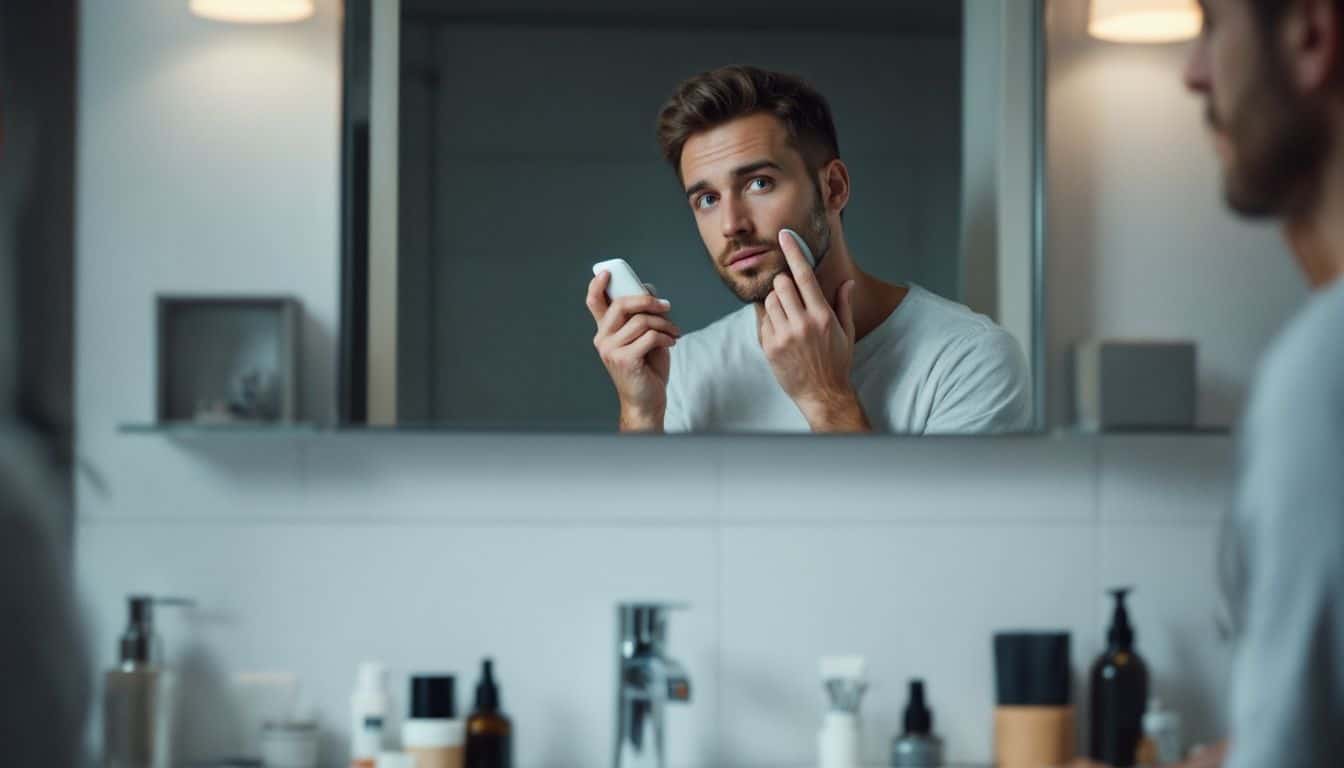Struggling with razor burn or dry, dull skin even after shaving and grooming each day? Studies show that simple, daily grooming habits strongly influence a man’s appearance and confidence.
This post shares seven easy hacks for him—practical tips to upgrade your skincare, shaving routine, beard care, fragrances, haircuts, nails and more—to help you look neat and polished in 2025.
Read on to level up your style game!
Key Takeaways
Clean your face with a gentle, soap-free cleanser before shaving—this helps cut down irritation and razor bumps.
Shave right after a shower, always use a sharp blade, and shave in the same direction your hair grows to prevent razor burn.
Limit shampooing your hair to three times weekly—this protects your scalp’s natural oils and keeps your hair healthier.
Wear sunscreen every single day (yes, even cloudy ones)—it lowers your skin cancer risk by as much as 40%.
Spritz colognes lightly, two or three sprays on your wrists and neck, so your scent lasts longer without being too strong.
Table of Contents
Master Your Shaving Routine
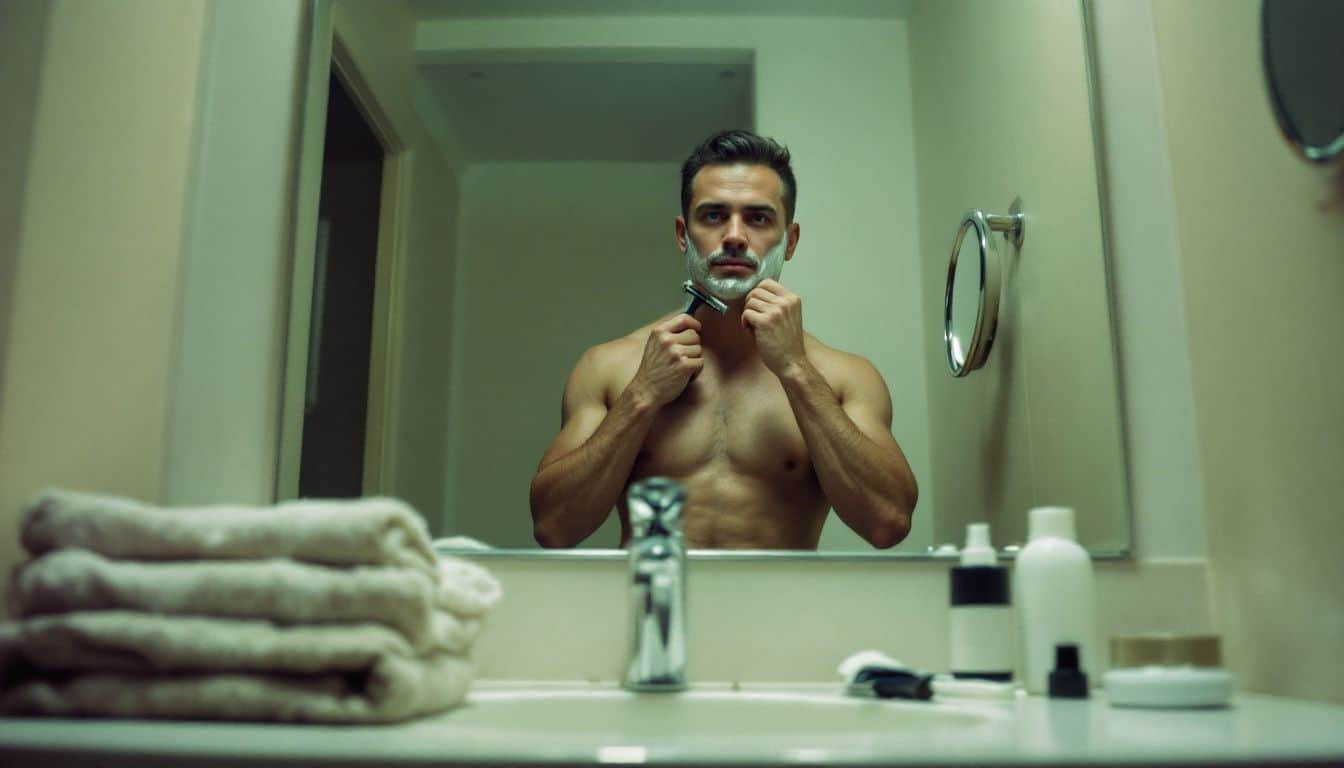
A good shave starts with the right prep and tools. Sharp blades and warm water open pores for a smooth, nick-free result that will boost your morning routine.
Use a non-soap cleanser before shaving
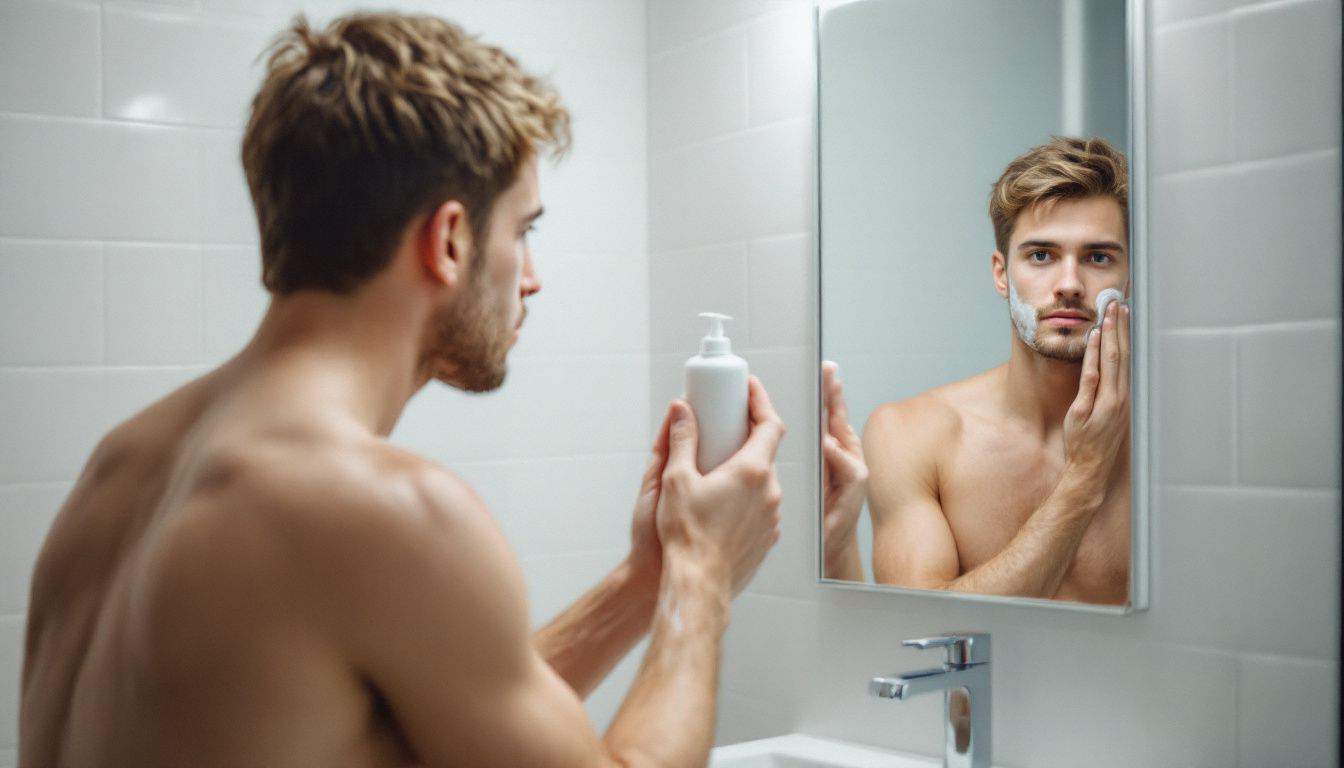
Toss out that bar soap before shaving—it pulls natural oils from your skin, causing more razor bumps. Last year, I switched to Cetaphil Daily Facial Cleanser, and my irritation levels dropped dramatically.
This gentle formula softens your stubble, preparing your face nicely for a smooth shave. Start each morning wash with warm water and a soap-free cleanser; this opens your pores and raises facial hairs away from your skin.
Exfoliate your face once or twice a week, removing dead skin cells that trigger ingrown hairs. Lots of guys mistakenly use very hot water, but it dries your skin out badly, making cuts and irritation more likely.
I’ve tested plenty of different cleansers, and those gentle, soap-free kinds always create the best shaving surface. Your skin will look and feel happier—less bumps and redness after every shave.
Prevent razor burn with proper techniques
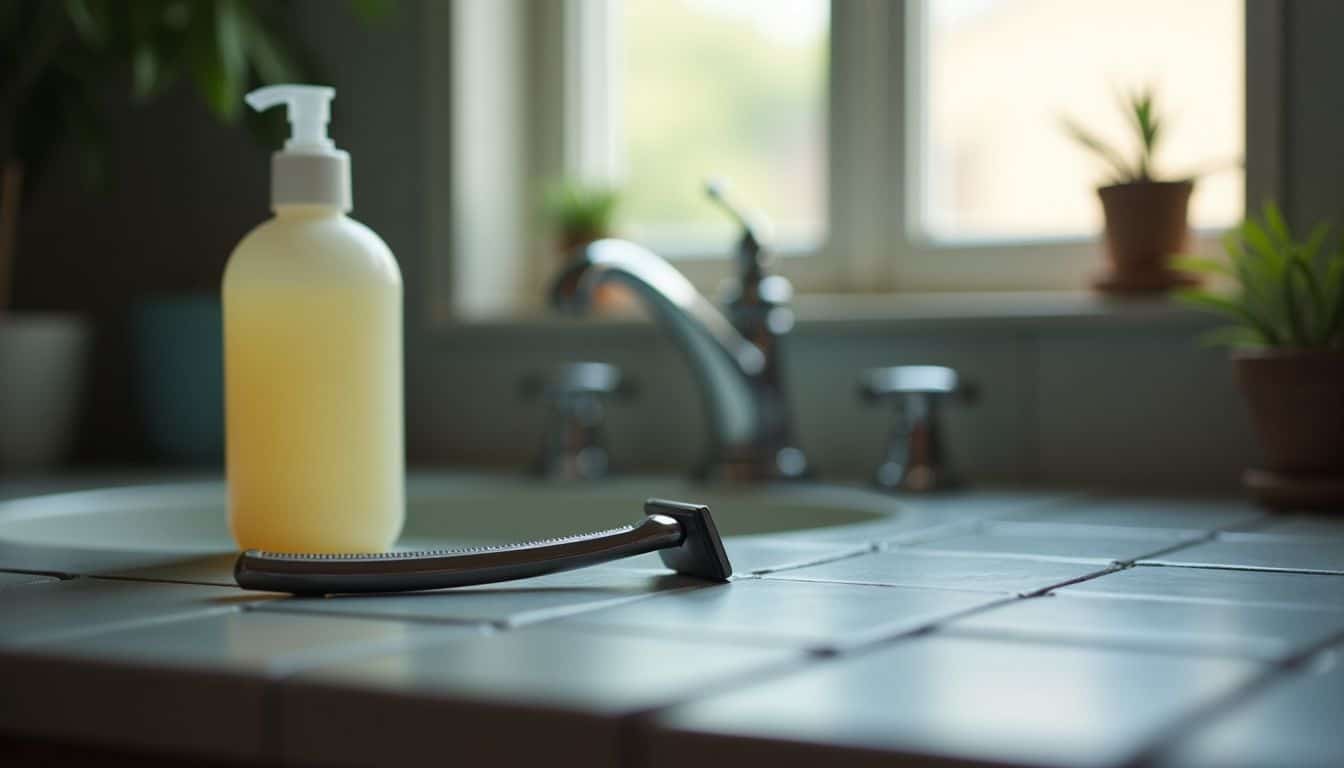
Razor burn can spoil your whole morning—leaving your face irritated, red, and sore. Luckily, stopping this discomfort just takes a few easy steps. Always shave after showering, since the steam softens your skin and opens pores.
Choose a sharp blade; dull razors force you to press harder, causing extra irritation. Replace razors regularly—after every five to seven uses—to avoid dullness. Cover your face generously with a creamy, moisturizing shave gel or cream.
It helps the razor glide smoothly, reducing friction.
The best grooming routine isn’t about products – it’s about technique.
Follow the direction your hair grows for less irritation. Many men mistakenly shave against their grain, thinking it gives a closer shave—but that encourages stubborn, ingrown hairs.
Afterward, pat your face gently dry instead of rubbing hard; dragging a towel across sensitive skin just irritates it more. Finish up by applying a soothing, alcohol-free moisturizer, which calms skin and seals in hydration.
These tweaks take only a couple minutes but spare you from the itchy, painful misery of razor burn. A comfortable, relaxed morning can easily start from these simple shaving adjustments.
Hair Care Essentials
Your hair needs special care to stay strong and healthy. The right shampoo and styling products can make a huge difference in how your locks look each day.
Wash your hair only three times a week
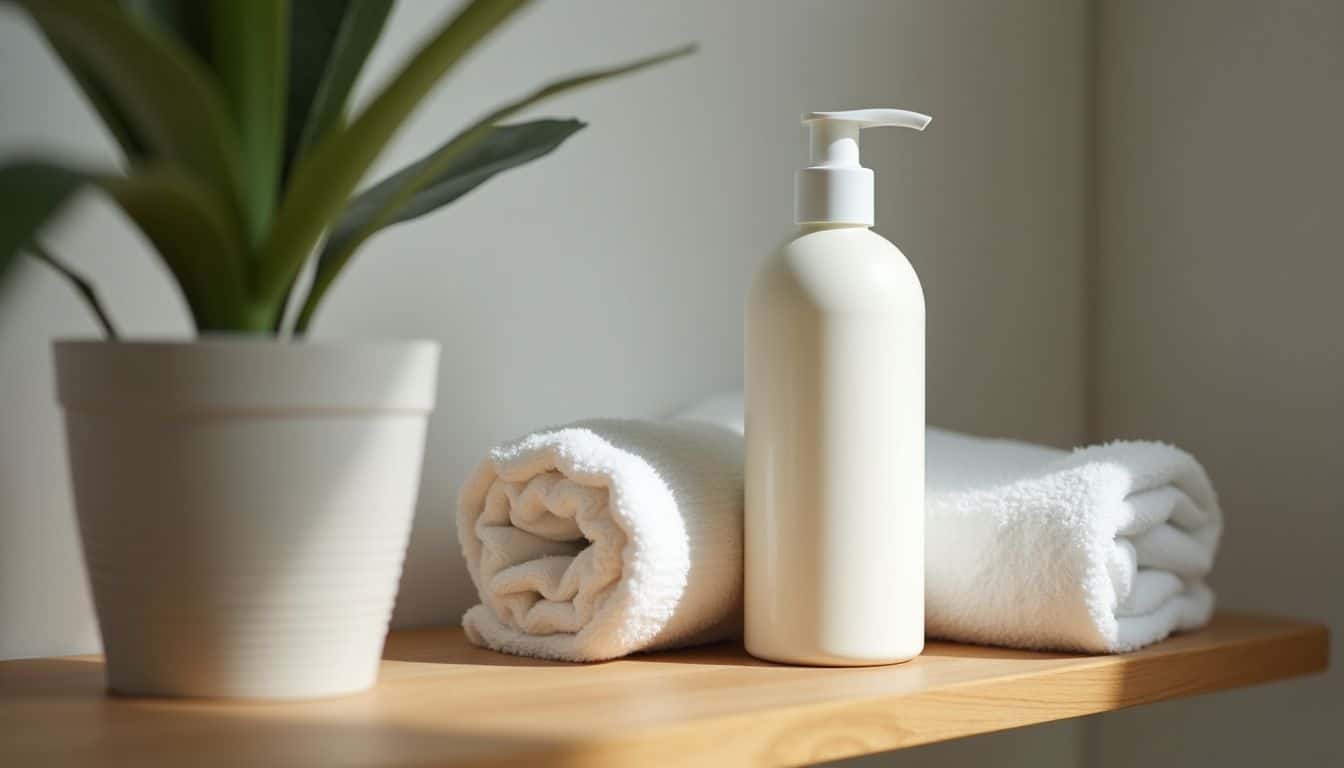
Most guys wash their hair every day, but doing this can remove natural oils your scalp actually needs. Cutting back to only three washes a week can lead to healthier hair and scalp.
The scalp creates a natural oil called sebum—it shields the hair strands, keeping them strong and protected. Lukewarm water works best during shampooing, since hot water can cause extra oil to form.
On days without shampoo, just rinse your hair with water if you feel it’s needed. Pick shampoos that fit your hair type, like moisturizing shampoo for dry scalps or clarifying shampoo if your hair tends to get oily quickly.
Avoid relying too often on dry shampoo—it can build up and block your pores over time. Making these minor tweaks to your hair routine takes just a few minutes, yet gives you healthier, better-looking hair.
Tailor your haircut to your face shape
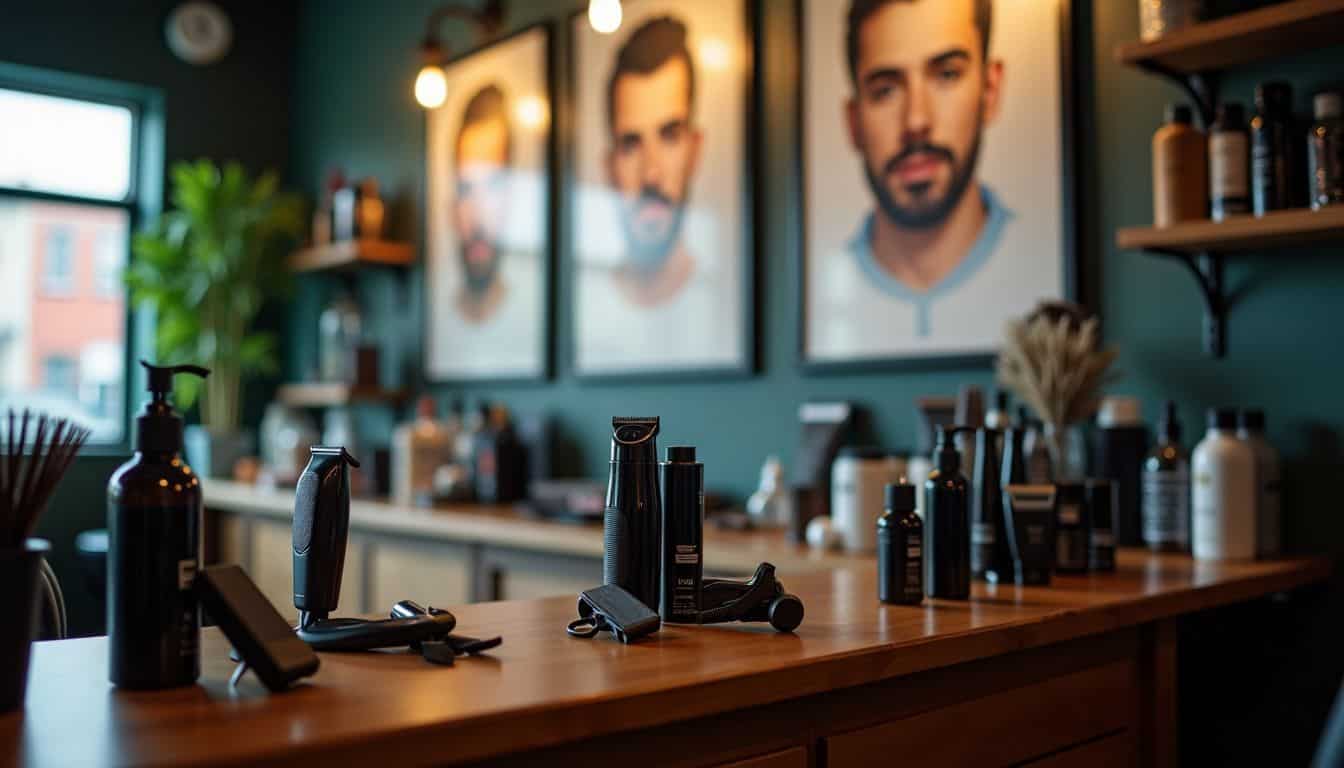
Your face shape means more for your haircut than you realize. Guys with round faces look best with tighter side cuts—they add definition and sharper angles. But if your face is longer, ask the barber to leave more length around your temples and sides.
This small trick helps balance your facial features. I learned this through years of bad haircuts making my face seem even longer than it actually is. Choosing the right haircut means working with your natural facial structure—not fighting against it.
Hair texture matters a lot too, affecting how different styles actually look on you.
In 2025, face-based styling will get much bigger in men’s haircuts. Many barbers already give personalized styling advice, highlighting your best qualities instead of just following common fashion fads.
An ideal haircut frames your face comfortably—just as a good dress shirt fits your body perfectly. Next time you’re at the barber, mention your face shape and hear what advice they have for you.
Now, about skincare—daily moisturizing makes a real difference in keeping your skin fresh and healthy.
Skin Care Hacks
Your skin needs more care than you think. Good skin habits now will save you from looking older than your age later.
Moisturize daily to maintain healthy skin
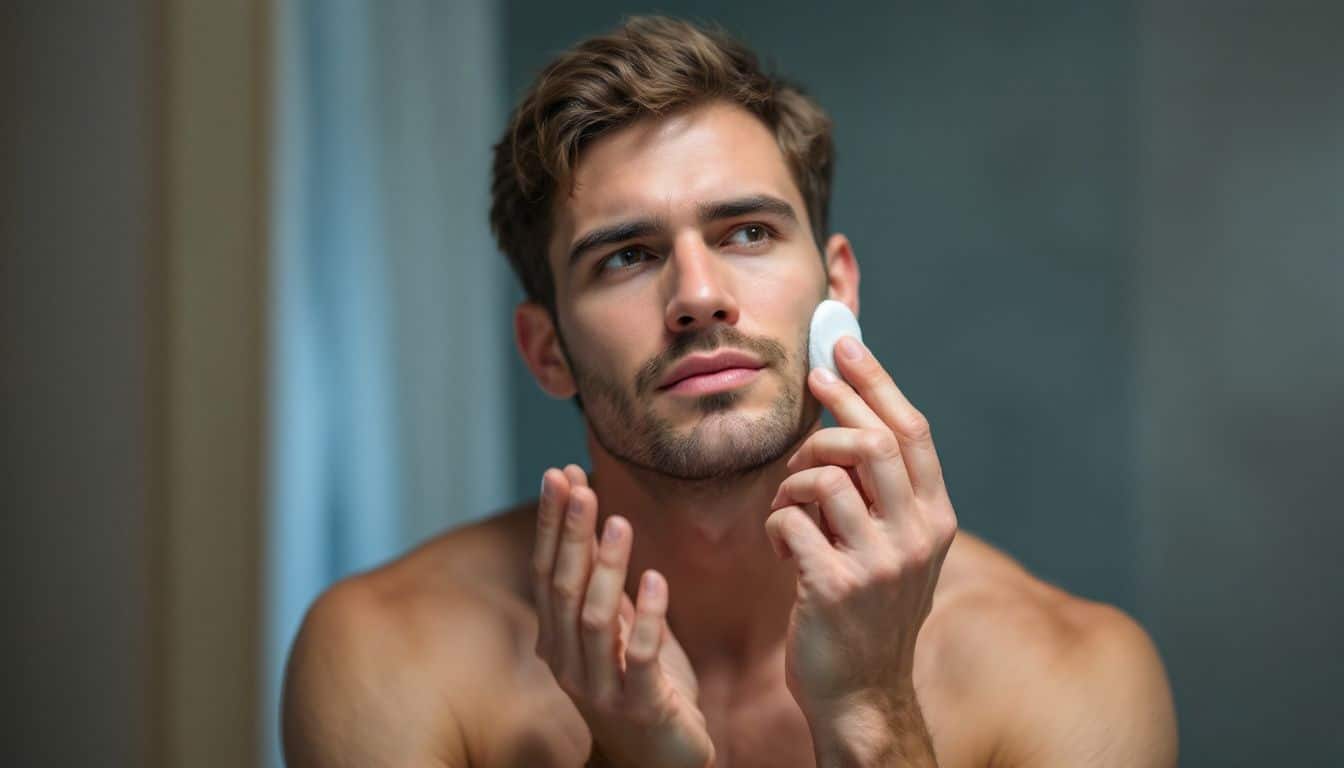
Guys, moisturizing daily isn’t just a women’s habit—men need it too. Skin easily becomes dry and damaged without proper care. Get yourself a good-quality moisturizer, then put it on every morning after washing your face.
This easy step locks moisture in your skin and forms a protective shield against dirt and pollution. Lots of men skip moisturizing, but hydrated skin looks fresher, healthier, and younger.
Choose a moisturizer with SPF protection to block harmful sun rays that age and injure your skin.
Drinking plenty of water also keeps skin healthy and fresh. Eight glasses a day help maintain plump, well-hydrated skin cells from within. Eating antioxidant-rich foods matters too; berries, leafy greens, and colorful vegetables help fight skin damage naturally.
Think of moisturizer as basic upkeep—just like regularly changing oil in a car. Skipping this step shows up quickly as dryness, wrinkles, or irritation on your face. Spending a few extra seconds each morning on skin care helps maintain a healthy glow for years.
Use sunscreen to prevent damage
Moisturizing keeps your skin healthy, but sunscreen gives you even stronger protection. Sun damage doesn’t only happen at the beach—it occurs in everyday life too. A broad-spectrum sunscreen with SPF 30 protects your skin from rays that cause wrinkles, dark spots, and serious health problems.
In fact, men who apply sunscreen each day reduce their risk of squamous cell carcinoma by about 40%.
The best anti-aging product is the one most men ignore – sunscreen.
Apply plenty of sunscreen on every exposed area of skin, even on cloudy or cooler days. Protection wears off after swimming or sweating, so put more on regularly if you’re outdoors for a while.
It only takes five minutes—make it as routine as brushing your teeth. Your skin is the body’s first defense, and simply protecting it now can give you healthier skin down the line.
Beard Grooming Tips
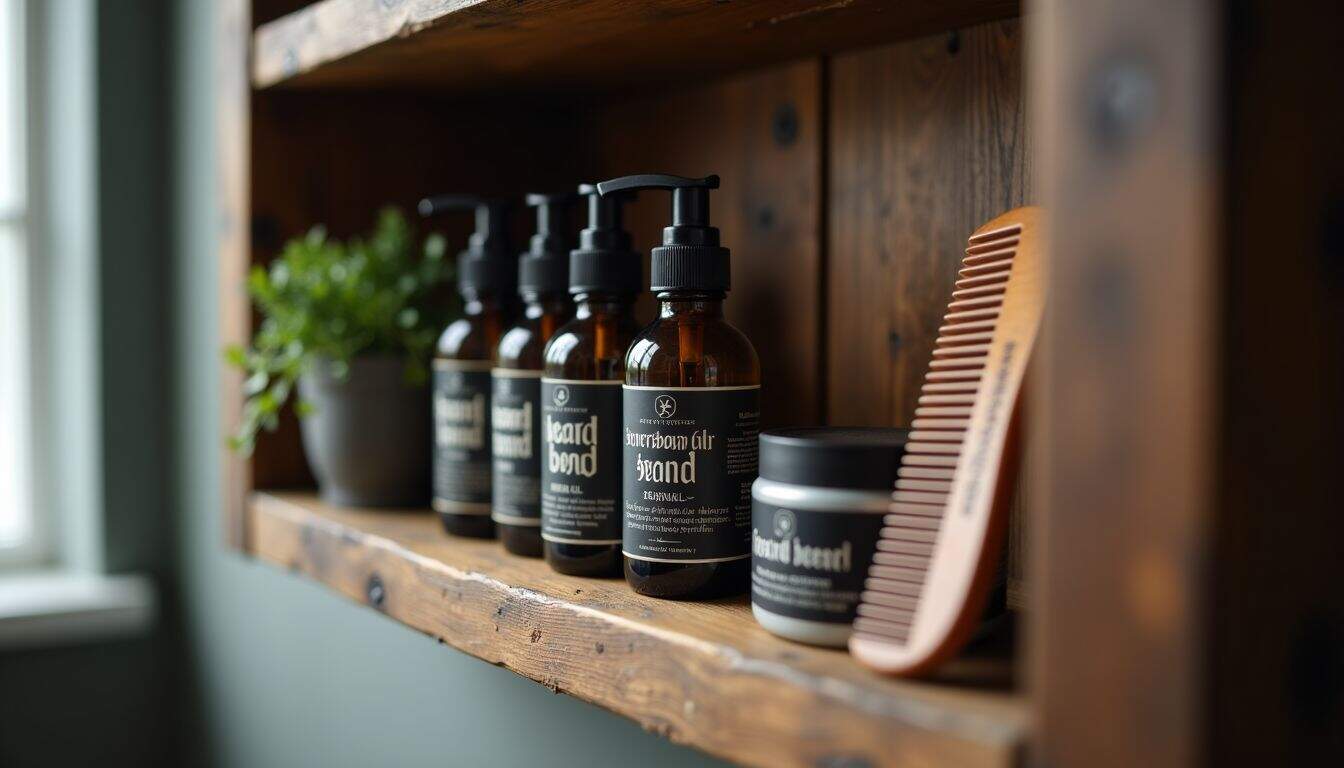
Beards need daily care just like the hair on your head. A well-kept beard shows your commitment to style and sends the right message in both work and social settings.
Keep your beard trimmed and shaped
A neat beard sends a clear message—it shows you take pride in your appearance. Give your facial hair at least a full month of growth before your first trim. That waiting period helps you spot the natural growth pattern clearly.
To keep your beard looking sharp, pay attention to three areas: the cheekline, neckline, and back line. Keep the cheekline higher up on your face, so you don’t end up with that outdated chin-strap look from 2010.
Most men need just two simple tools—a good pair of scissors for precise details, and a trimmer for quick shaping. Short beards usually require frequent trims, about every two weeks, while longer styles can wait up to a month.
Treat your beard like an investment—it reflects your personality and shapes how others view you. Regular trims prevent your facial hair from becoming messy and scruffy. For a finishing touch, add a bit of beard oil to soften hairs, add shine, and help you look well-groomed wherever you go.
Apply beard oil for softness and shine
Keeping your beard looking sharp takes regular care, but it’s simple enough. Beard oil does wonders by giving facial hair extra shine and moisture. This natural product softens your beard and nourishes the skin below.
Guys who apply it daily see fewer split ends and less damage. Last year, I tried a cedar-scented beard oil—and my rough, scratchy beard became smoother than ever.
A great beard isn’t grown, it’s maintained.
You’ll notice softer facial hair after just a couple weeks of daily application. Just put 3 to 5 drops in your palm, rub your hands gently, and spread it evenly through the beard. Shorter styles take less oil; longer beards usually need a little extra.
It’s a quick and easy habit—no more than a few seconds—but the results are impressive. Beard oils also smell great, and those pleasing scents can help you relax, while protecting facial hair from harm.
Nail and Hand Care
Your hands need care too, not just your face or hair. Clean, neat nails make a strong first impression in both business and social settings.
Keep your nails trimmed and clean
Clean, neat nails leave a strong first impression—well worth a few minutes of effort. I always trim mine straight across, rounding slightly at the edges, to avoid painful hangnails or infection.
Doing this keeps dirt from settling beneath the tips and gives hands a tidy look. Many men overlook nail care, but clean nails matter a lot, whether at business meetings or on dates.
Keeping nails dry promotes good health, so I thoroughly pat my hands dry each time I wash them. A swift scrub using a nail brush removes grime that regular soap leaves behind. After trimming, I rub in hand cream to prevent dryness, especially in colder months—when my skin tends to crack easily.
Comfortable shoes also help toenails stay healthy, since overly tight footwear can cause lasting nail damage.
Use hand cream to avoid dryness
Your hands go through a lot each day. They face soap, weather, and tough tasks—all of which wear away natural oils. A reliable hand cream provides essential protection against dry, cracked skin.
I use hand cream immediately after each wash, sealing moisture into my skin. Adopting this quick routine has turned my hands from rough sandpaper to smooth, healthy-feeling skin in just weeks.
Good hand cream does more than soften skin—it creates a protective shield against irritation. It keeps moisture balanced and strengthens your skin’s natural defenses. A lot of men skip this easy grooming step, but rough hands can leave a poor impression at business meetings or on dates.
Go for a non-greasy cream that quickly sinks into your skin, letting you resume tasks without slippery fingers. Investing a little time into hand care brings healthier skin and a sharper overall look.
Fragrance Hacks
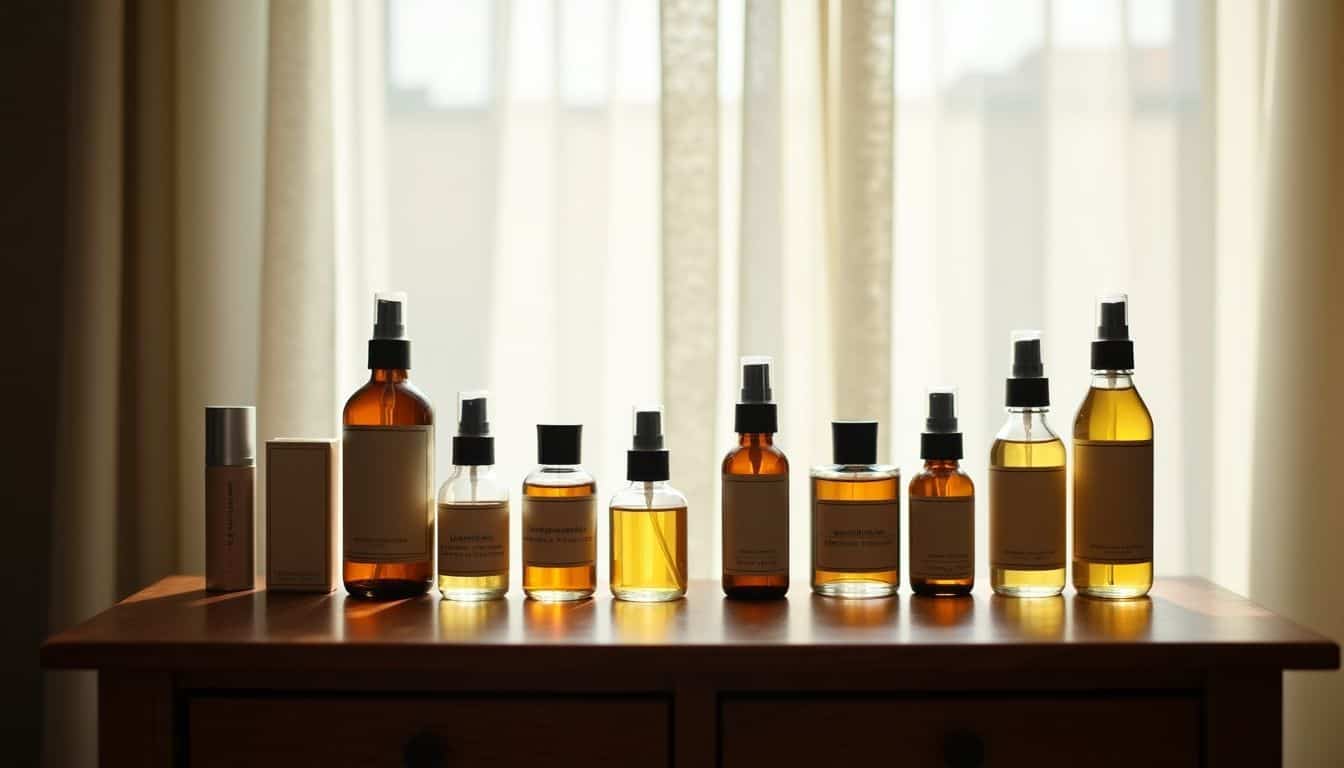
Smell good all day with these fragrance tricks that most guys miss. A few drops of cologne on your wrists and neck can make you stand out in any room without being too much.
Apply cologne to pulse points for lasting scent
Cologne performs best when applied to warmer parts of your body. Target pulse points, like your wrists and neck, to boost the scent’s impact. One spray on each wrist and another at the base of my neck usually does the trick, offering just the right strength without overwhelming.
These warm spots naturally help the fragrance release slowly and evenly all day. A common mistake guys make is spraying fragrance directly onto their clothing—that move often cuts fragrance life down to around two hours.
But applying cologne the right way extends how long a fragrance based on bourbon or citrus notes stays noticeable. This easy trick not only helps you smell fresh for longer, but also makes your fragrance supply last, saving you cash in the process.
Avoid overusing fragrance
Pulse points help scents spread—but too much fragrance can spoil the effect. Men often apply excess cologne, pushing people away instead of attracting them. A safe guideline is two or three sprays at most.
Your scent should whisper, not shout or reach others before you enter the room.
Store fragrance bottles in a cool, dry place, away from direct sun. This simple step keeps your scents fresh and protects your spending on quality cologne. Before applying fragrance, moisturize your skin—it helps the scent stick around without extra sprays.
The goal is a gentle scent bubble, noticeable only when people are near—not from across the room.
How Will Men’s Grooming Trends Evolve in 2025?
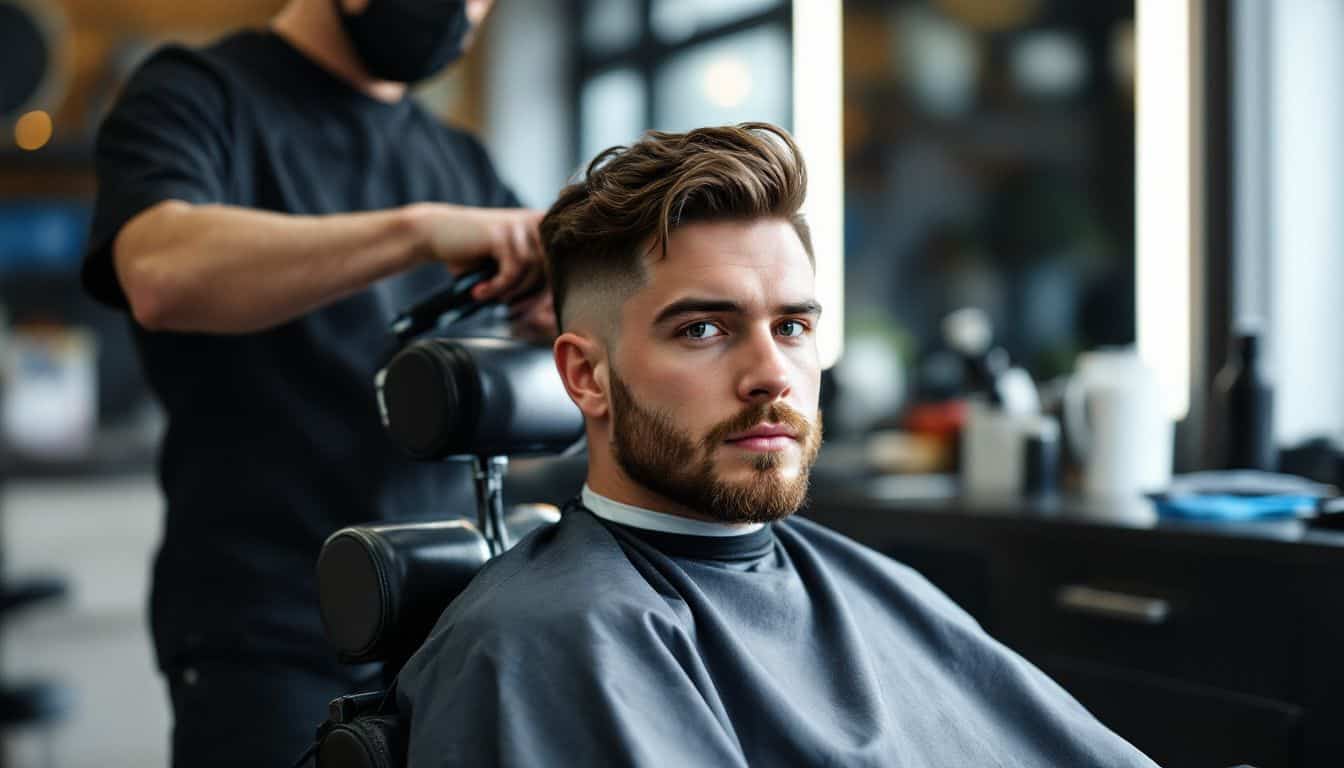
Men’s grooming routines will change a lot by 2025—moving toward comfort, ease, and healthy choices. The Modern Flow hairstyle will attract more fans, while the Textured Crop Fade becomes popular for guys after a bold but neat appearance.
The Classic Buzz Cut won’t go anywhere either, thanks to its easy upkeep.
For facial hair, two main looks will stand out. Many guys will go for the casual Shadow Beard, while others pick the Sculpted Full Beard for a stronger impact. Plus, a Mustache Renaissance will arrive—bringing back styles from earlier eras, but with a fresh spin.
Grooming products will start emphasizing health, not just looks. We’ll see matte pomades replace shiny hair gels, and volumizing powders will become popular among men dealing with thinning hair.
SPF moisturizers will turn into everyday essentials, since more men will care deeply about skin protection. Smart grooming gadgets, linked to your phone, will soon help track skin health—keeping you better informed.
Barbers will also step up their game by creating personalized grooming plans. They’ll match hairstyles and grooming tips to your lifestyle, hair texture, and face shape. This tailored approach is expected to become standard practice by 2025, making men’s grooming easier and more enjoyable than ever.
People Also Ask
What are some simple, practical grooming hacks for men in 2025?
Use cedar hangers for your clothes—cedar naturally repels odors and keeps clothes fresh. Gently exfoliate your skin twice a week; it’s a quick step that helps skin look brighter and healthier. Quality shoe trees keep your dress shoes in shape, preventing creases and extending their lifespan.
How can I easily get a better night’s sleep?
Limit blue light—from your phone, computer, or TV—before bedtime, which helps your body naturally create melatonin and reset your sleep habits. Simple deep breathing exercises can calm your mind and even ease snoring issues. Short mindfulness meditations before bed also help improve deep, restful sleep.
What’s the best method to keep dress pants and jeans looking their best?
Hang your dress pants instead of folding them—it avoids wrinkles and keeps them crisp. Try not to dry-clean your slacks too often; frequent dry-cleaning weakens the fabric over time. For jeans, always wash them inside-out in cold water so they keep their original color longer.
Can citrus play a role in improving my grooming habits?
Lemon and lime juices work as natural, gentle cleansers—perfect if your skin gets oily quickly. Dried orange peels placed among your sweaters and shirts naturally freshen your clothing storage with a subtle scent. Eating citrus fruits boosts vitamin C levels, helping the skin look healthier from within.
What types of financial investments fit well alongside grooming spending?
Look at index funds—they offer steady returns while spreading out risk because they combine many investments into one. Set aside part of your budget to build a wardrobe with durable, timeless clothing, rather than buying cheaper items often. Taking a long-term view pays off financially and in how you present yourself.
Any tips for stepping up my cocktail-making skills for parties?
Start by mastering the classic old-fashioned cocktail—use good bitters, balanced mixers, and proper ice. Pay close attention to fruit juice proportions, especially citrus-based drinks, to balance sweetness and tang. Serving your drinks in quality glassware filled with clear, fresh ice always impresses your guests.
References
https://www.zicail.com/should-i-wash-my-face-before-or-after-shaving/
https://www.aad.org/public/everyday-care/skin-care-basics/hair/razor-bump-prevention
https://www.aad.org/news/how-to-prevent-razor-bumps
https://www.vogue.com/article/greasy-hair-expert-tips
https://scottfsalon.com/best-haircuts-for-different-face-shapes/
https://www.mayoclinic.org/healthy-lifestyle/adult-health/in-depth/skin-care/art-20048237 (2024-11-22)
https://www.foreverbeauty.app/effortless-grooming-and-skincare-for-men-in-2025
https://pmc.ncbi.nlm.nih.gov/articles/PMC7759112/
https://www.neutrogena.com/the-bar/10-spf-hacks-we-cant-live-without (2023-04-18)
https://www.aad.org/public/everyday-care/nail-care-secrets/basics/healthy-nail-tips (2025-02-10)
https://www.amazon.com/Nail-Care-Tricks-Style-Secrets/dp/1467752215
https://pmc.ncbi.nlm.nih.gov/articles/PMC1397860/
https://www.cosmopolitan.com/style-beauty/beauty/advice/a34783/fragrance-hacks/ (2021-01-21)
https://www.nykaa.com/beauty-blog/how-to-make-perfume-last-longer/
https://ckstudiosalon.com/mens-grooming-haircut-trends-for-2025-the-ultimate-guide/ (2025-02-19)
